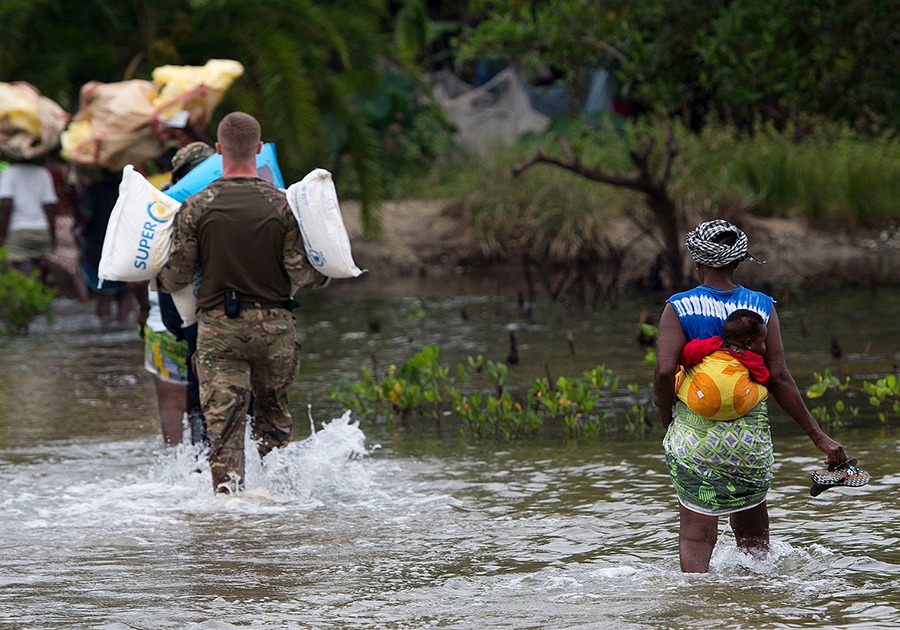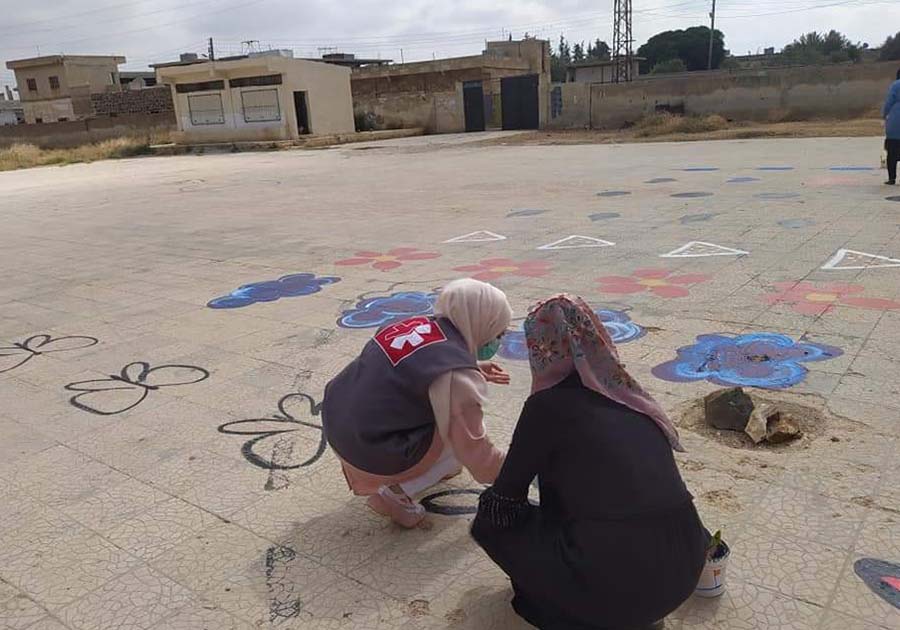Why Anti-Corruption Efforts are Critical in Humanitarian Contexts

Good intentions do not shield the sector from exploitation, and corruption presents itself as an endemic problem in humanitarian contexts.
How to define corruption? Corruption is the abuse of a position of power for private gain and covers a vast range of practices. These include everything from bribery extortion, and embezzlement, to sexual exploitation or collusion. The detrimental impact of corruption on the humanitarian sector is immense. Not only does it decrease the effectiveness of humanitarian aid, but it also erodes confidence in public institutions, weakens democracy, accelerates social division and exacerbates poverty.
Overall, anti-corruption significantly hinders progress towards the Sustainable Development Goals and must be mitigated to enable a better future for all.
Corruption in Humanitarian Contexts
Humanitarian organisations operate in extremely challenging environments which are vulnerable to exploitation. Many such contexts grapple with high pre-existing levels of structural corruption. For example, CTG operates in four of the five lowest-ranked countries in Transparency International’s Corruption Perceptions Index: Somalia, Syria, South Sudan and Yemen.
By nature, humanitarian relief is delivered in resource-poor environments characterised by unequal power distributions. The urgency of crisis responses can lead to delivery speed taking precedence over monitoring, creating opportunities for resources to be siphoned into alternative channels.
Humanitarian assistance aims to address and alleviate people’s most urgent needs in emergency situations. Unfortunately, good intentions do not shield the sector from exploitation, and corruption presents itself as an endemic problem in humanitarian contexts, with huge financial and social costs. The United Nations Office on Drugs and Crime (UNODC) estimate that $1.26 trillion is lost to corruption annually across the Global South. Similarly, the African Union estimates that corruption dissipates 25% of the continent’s GDP annually.
Impact on Development
Corruption obstructs the ability of aid and development organisations to operate and achieve their goals on both a physical and ideological level. The loss of aid-intended funding through corrupt practices has direct human costs in reducing the availability of vital resources. Power inequalities mean the negative impacts of corruption are disproportionately felt by the most vulnerable. Vulnerable communities are more heavily reliant on aid and public services and consequently more affected when these break down.
The lack of alternative options makes these groups susceptible to exploitation, for example, being forced to pay to access services which should be free. A Transparency International report in 2019 found that in the Democratic Republic of Congo (DRC), 80% of people surveyed expected to pay facilitation payments for public services such as police or water sources.
Loss of Trust
Aside from physical costs, corruption significantly impacts public support for development projects. Engagement at both community and governmental levels is crucial in determining overall project success or failure. When a person or organisation exploits their power for private gain it violates the social contract between the organisation and the public. This can result in a loss of trust which in turn precipitates a loss of engagement by the local community, consequently jeopardising project success.
Reputational Damage
The humanitarian sector embodies a desire for social change and a commitment to improving the lives of others. It is therefore vital that organisations within the industry reflect this through their own practices. The aid and development sectors are frequently subjected to high levels of scrutiny. The confidence of the public in the ability of aid and development to contribute to positive social change, consistent with the ‘do no harm’ principle, is crucial to the continued operation of these organisations.
Anti-Corruption Efforts
Given that CTG operates in high-risk contexts where corruption is an endemic part of the social environment, it is paramount that neither CTG nor its personnel are involved in corruption of any form. Organisations working in the humanitarian sector, and conflict-affected contexts share a collective responsibility to mitigate corruption within the industry, and this includes the private sector. There are many things that organisations can do, from anti-corruption declarations to staff training, or aligning with anti-corruption principles such as those defined by the United Nations Global Compact.
Transparency, accountability and open dialogue are key to these efforts. Some organisations may be hesitant to openly discuss the issue due to the risk that proven corruption may result in funding cuts or lost business. However, transparency facilitates deeper understanding and awareness and encourages whistleblowing.
Information transparency regarding resource flows effectively mitigates potential diversion to unintended recipients. Improving both upward (to donors) and downward (to recipients) accountability through monitoring and evaluation mechanisms helps ensure that assistance is reaching intended recipients and having a positive impact.
Corruption is sometimes perceived as an unavoidable aspect of emergency situations. However, corruption arises in these contexts due to opportunity. By reducing this opportunity, all stakeholders can help reduce its prevalence. Challenging corruption within the humanitarian sector will only have positive outcomes on the effectiveness of humanitarian responses and accelerating progress toward the SDGs, and we all have a role to play.

